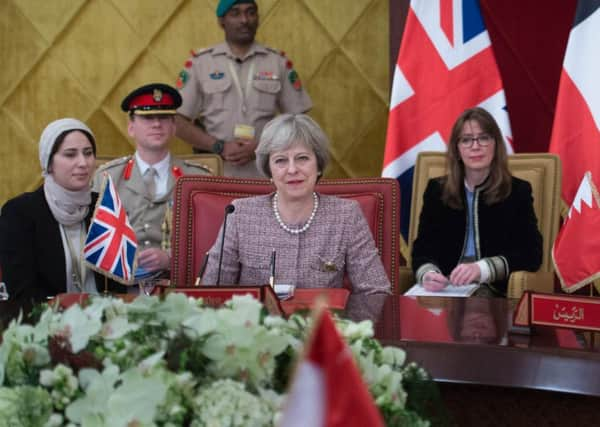Mark Garratt: Bradford will reap benefits of Brexit if it reaches out to world


This does not mean that we break from our fruitful partnerships in Europe. Quite the opposite. Joint research projects with our European partners continue to add immeasurable value to our applied knowledge and teaching, and to our economy. But it does mean that we should be open to, and actively pursue, new partners in other regions.
UK universities are uniquely placed to lead this effort. We are particularly blessed in Yorkshire with universities that are sector-leading in research and teaching and have the expertise sought by international institutions.
Advertisement
Hide AdAdvertisement
Hide AdThis is why the University of Bradford has just completed a hugely successful two-week visit to the Middle East, taking in Kuwait, Jordan, United Arab Emirates, Qatar and Bahrain, a region rich in potential for collaboration, and where the stock of UK universities is still extremely high.
Bradford alone has over 3,000 alumni in the Middle East, many of whom occupy influential positions, including Dr Saleh bin Mohammed Al-Nabit, Qatar’s Minister of Development Planning and Statistics. We awarded an honorary degree to Her Highness Sheikha Fatima Bin Mubarak, who has worked tirelessly for female equality in the United Arab Emirates, particularly in the promotion of education and health.
During the trip we were able to sign memoranda of understanding with a number of institutions, including the University of Jordan and Qatar University, in order to move forward collaboration in research, student and staff exchanges and recruitment, building on the nearly 200 current students from the region studying with Bradford.
We held discussions on the delivery of programmes to the region, from business administration to physiotherapy, including providing support to aspects of the football World Cup in Qatar. Again this builds on work already taking place, including providing consultancy to Middle East businesses. The University of Bradford was also asked to consider how it could help train nurses and pharmacists in Kuwait, which is building nine new hospitals.
Advertisement
Hide AdAdvertisement
Hide AdThe trip enabled us to re-engage with nearly 500 of our fantastic alumni at events in the British Embassies in Jordan, Qatar and Dubai. We even managed to meet graduates who received their degree from our first Chancellor, and former Prime Minister, Harold Wilson.
While all of this has obvious benefits for the Middle East and a technology university like the University of Bradford, it is of no less value to Bradford and its wider region. Such engagement work raises the profile of Bradford as a city and region and opens up immense possibilities.Our reputation as a base for high-tech, scientific and computer-based industries is growing, building on a long tradition of innovation, high skill-levels and quality products.
Bradford is a producer city and a manufacturing city, young and dynamic, with 25 per cent of our population aged below 16 and all digitally-savvy. Its fastest-growing sectors include information technology, financial services, digital industries, environmental technologies, cultural industries, advanced healthcare, tourism, and retail headquarters and distribution.
The University of Bradford is one of very few research-intensive technology universities in the UK and so we are well positioned to support the city in brokering and taking advantage of such opportunities. And it also means that students from the Middle East see us as a perfect destination to study and further their careers.
Advertisement
Hide AdAdvertisement
Hide AdWe hosted the first World Technology University Congress here in Bradford last September and will do so again this year. We will be looking forward to our Middle East partners joining us.
As we said at the time of the congress, higher education, research, science and innovation are key drivers of economic growth. Education transforms lives and societies, providing the route for technological advancement and social mobility.
It also provides the route to helping to solve the world’s great problems and creating the stability that is vital to progress. Having our alumni at the highest level of government is an endorsement of our expertise.
This ‘soft power’ and influence is something that, regardless of one’s position on Brexit, the UK will still be able to exercise and is one of the reasons that Prime Minister Theresa May has also just visited the Middle East.
Advertisement
Hide AdAdvertisement
Hide AdWhatever the outcome of negotiations on our relationship with the EU, this remains a world in which vast opportunities exist, in education, business and societal terms. Bradford has unique advantages in grasping these opportunities and it is vital that we do so.
Mark Garratt is director of external relations at the University of Bradford.